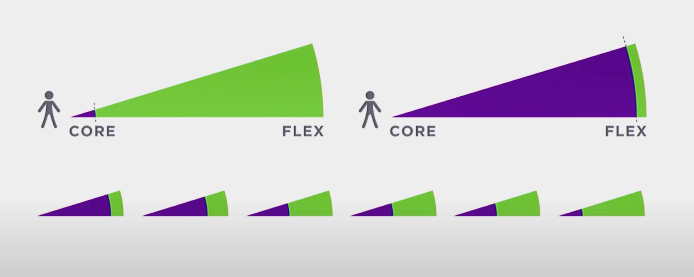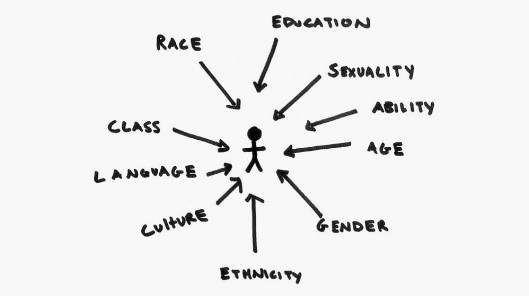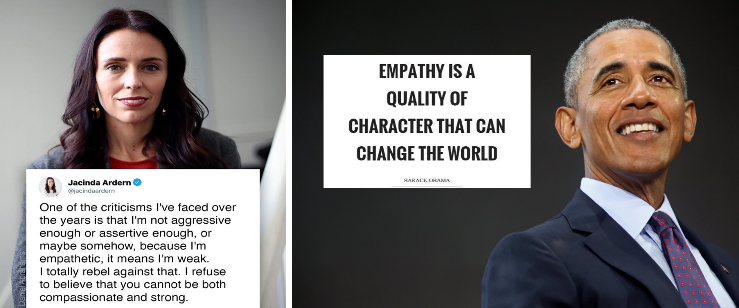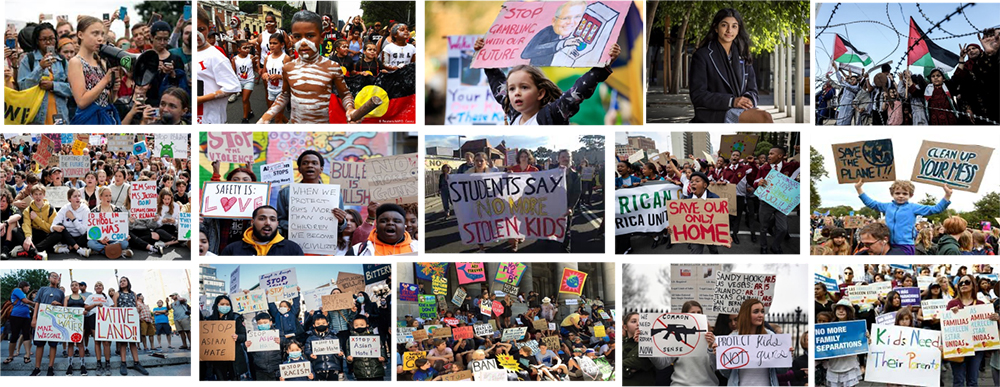Purpose Incorporated: A primer for brands in APAC
This article is part of a special series on how brands in APAC can go beyond profit to do good and do better for themselves and others. Read more.
Non-WARC subscribers can read this series in its entirety by accessing the articles via the landing page.
Why it matters
More than a year into a global pandemic, inequality gaps have widened and human rights aren’t being upheld, and rehumanising leadership will allow us remember our humanity and let it guide our actions so we can rebuild a world where no one gets left behind.
Takeaways
- The world is crying out for leaders who use their sense of humanity as a compass for action.
- For businesses, what was seen as philanthropic endeavours, eg sustainability, are now imperatives for survival and success.
- Our lack of action stems from our prevailing constructs, and leaders who are overwhelmed and don’t know where to start.
Leadership was always meant to be a privilege that allowed you to serve others. It’s a responsibility and duty of care to create value for people and the planet by delivering profit with integrity.
Rehumanising leadership simply means to return to what leadership was always meant to do. It involves remembering our humanity and letting it guide our actions so we can rebuild a world where no one gets left behind.
What it looks like
The world is crying out for leaders who use their sense of humanity as a compass for action. The intensified focus on DEI, Purpose & Social Impact shows how far we’ve strayed from the origins of leadership and that we’re no longer certain what it looks like.
Leaders who lead with their humanity:
- Define success as outcomes for others, not their press releases or awards
- Believe purpose, empathy and inclusion are more than a strategy but a way of being
- Feel responsible for opening doors for others to serve the many, not just a few
- Choose to be part of the solution and take imperfect action to convert intention into impact
- Inspire people to follow, even without the title
Why it matters
More than a year into a global pandemic, it’s now clear we haven’t fulfilled our responsibility as leaders to influence the world for good – and we haven’t been for some time. Inequality gaps have widened, human rights aren’t being upheld and the climate crisis has increased in momentum. Looking ahead, it’s unclear what kind of world we’re heading into, or what our children will inherit.
The lack of integrity hasn’t gone unnoticed. In Havas Meaningful Brands Survey 2021, only 47% of brands are seen as trustworthy with 71% of respondents cited as having little faith that brands will deliver on their promises. Furthermore, 73% think brands must act now for the good of society and planet, and 64% would buy from brands with a reputation for purpose and profit (10% increase from year prior).
For humanity, this means leadership character matters more than ever. And for businesses, what was previously considered philanthropic endeavours i.e. sustainability, social impact, purpose-led growth agendas and DEI have suddenly become imperatives for survival and success.
Where it went wrong
The path to where we are now is studded with moments where shareholder capitalism prevailed over humane leadership and business practices.
In 2020 we crossed a threshold. The world as we knew it disintegrated overnight and alarming events went on largely unrebuked:
- Millions of workers dismissed in their greatest hour of need to preserve shareholder returns
- Billion-dollar brands withholding payment from factory workers in India or Southeast Asia
- The most vulnerable in society and frontline workers abandoned to fend for themselves
- Resurgence of Far-Right Wing groups
- Divisive, inflammatory and biased media reporting
We’re now at a point of global reckoning. We must interrogate ourselves, our institutions, our social systems and players. For leaders, this means taking responsibility for the role business plays in every arena. It’s an interesting crossroads because we know we should have done this long ago. And we’re still not doing enough about it.
Why we haven’t done more about it
Humans are fundamentally good. So why haven’t we done more to address these problems that we can no longer ignore? Our lack of action stems from three key areas:
1. Our prevailing constructs
Firstly, institutionalised systems of oppression due to colonialism still form the fabric of society. Perpetuating generational inequity by preventing the majority of people from the ability to pursue happiness and create a life on their own terms.
Secondly, draconian patriarchal leadership styles and Milton Friedman’s business model continue to pervert our definition of progress and success in pursuit of profit. Not only is this bad for business, people and the planet, it’s a death sentence.
Thirdly, cultural artefacts like movies, books, advertising and even the media and news have conditioned us to accept inhumanity as the status quo. With these narratives often told through a narrow, biased perspective of the dominant culture or those in power championing the agenda of a select few.
We need to question everything we consider “just business” to successfully rebuild a more equitable world. For more curated resources All Of The Above Global | LEARN Resources
2. Leaders are exhausted, overwhelmed and fearful
Leadership today is infinitely harder and more complicated than it was just a decade ago. Leaders need to increase company DEI, decrease environmental impact, maintain profit margins, grow the business and ensure marketing comms has authentic representation. And do it all with less. Despite this pressure, leaders are often the ones with the least support. They face trial by social media and worry they might get it wrong.
3. Leaders don’t know where to start
Most leaders want to do something but not knowing where to start causes a range of reactions from: intentional ignorance, anger there’s something else on the to-do list, rushing to do the bare minimum, feeling totally overwhelmed or trying to do it all at once.
Global demand for rehumanised leadership
The good news is that change is already underway. Institutions and systems are shifting in fundamental ways, we’re witnessing positive world firsts more frequently and some businesses are taking robust action. Individuals and communities are also not waiting for governments and institutions to save them. They’re proactively championing humanity.
Still, we’re only at the beginning. To return to what leadership was always meant to be, we must strategically and intentionally rehumanise leadership.

Steps to rehumanise leadership
Step 1. Understand the basic principles
Leaders need the space to address the important and long-term over the urgent and short-term. And rather than being overwhelmed by the enormity of the task, the best approach is to be didactic about the outcome but be flexible on how to get there using a holistic lens to develop systemic solutions through intentional and incremental steps.
To successfully re-humanise leadership, leaders need self-awareness and knowledge on how to serve humanity better. Some basic principles:
1. Make leadership integrity non-negotiable
It's not an “either-or” strategy but “and”. It’s possible to be a profitable business with a soul and there’s plenty of data to prove it; one example is World Economic Forum 2020. But like any ecosystem, leaders need to consider the sum of parts and one aspect cannot be at the expense of another, especially humanity.
2. Commit to consistency and follow through
Similar to maintaining your fitness, consistency is key. One-off or sporadic efforts like workshops or week-long training won’t change anything unless the learnings are operationalised into the business immediately.
3. Champion outcomes, not outputs for everyone
DEI is critical now because it has been a matter of life and death for some people. Don’t pick convenient or popular DEI topics to capitalise on a perceived trend. Leading with your humanity means just that, remembering your humanity and that of others. This means being committed to outcomes, not singular outputs like a one-off Pride month campaign.
4. Make it okay to not know everything
No one comes out of the womb with knowledge of intersectional feminism. But you must start somewhere. Begin by challenging your own biases and perspective by diversifying your sources of intel and inspiration. Or bring in specialists, such as subject matter or industry experts to expedite solution development or people with lived experience, consultants and coaches to sound off and for meaningful implementation. For more self-education resources visit All Of The Above Global | LEARN Resources
Step 2. Frameworks to help you see and serve humanity better
It's impossible to know everything about everyone and every situation, given the depth and breadth of humanity. So we need frameworks, not formulas to guide how we make the best decisions for everyone involved in various situations.
Here are three frameworks that will help you lead with your humanity:
1. Cultural intelligence (CQ). Not just about ethnicity but a way to understand your own and someone else’s internal culture in terms of what are Core to you (non-negotiable) and what can Flex (aspects of you that are dynamic and change over time based on experiences and life stage). By understanding both, you can identify the commonalities to achieve mutual outcomes without compromising one another’s identity or integrity. More about CQ, summary explainer or see how P&G market with CQ.

Source: Cultural intelligence: The competitive edge for leaders, Julia Middleton, TEDxEastEnd
2. Intersectionality. Originally coined by law professor Kimberlee Crenshaw to describe the overlapping forms of oppression that affect black women. Today, it is used to understand the multi-dimensional and overlapping aspects of a person’s identity (ie race, gender, sexuality, class, ethnicity, education, age, neuro and physical ability, language, culture) that affect how they experience discrimination or privilege.

Source: International Women’s Development Agency
3. Empathy. Empathy is vital to lead with your humanity. So important that globally popular leader Jacinda Arden, New Zealand’s prime minister, wrote a book about it called Leading With Empathy, citing leaders can be both empathetic and strong. Empathy is more powerful than sympathy because it involves curiosity, a willingness to see the human context, share feelings and have compassion and motivation to support others. Sympathy is simply feeling pity. More on this difference here Empathy vs Sympathy - Brene Brown.

Lastly, imperfect action is better than perfect inaction. It's impossible to take perfect action in imperfect systems. But if we do nothing, we remain complicit in allowing structures of oppression to endure. To make progress, we need to build roads as we walk on them, fail often and fast to make any headway. For examples of imperfect action or to support organisations taking imperfect action, visit All Of The Above Global | Act
Practical applications
There are 5 Practical Application Areas for these frameworks.
- Area 1: Strategic Planning & Goal Setting
- Area 2: Internal Ecology (People, Systems, Policies and Culture)
- Area 3: Business Offer
- Area 4: Marketing & Communications
- Area 5: Partnerships & Ecosystems
In Chapter 1, we will cover the first two areas.
Area 1: Strategic Planning & Goal Setting
i) Think growth philosophy, not philanthropy
Doing good by humanity is good business sense – not charity – that needs to be at the centre of your strategy and the start of any process. Yet efforts to champion it, such as DEI, are often the first to be cut during budget reviews.
Championing humanity needs to be treated like any essential operating cost or investment, just like legal compliance fees or insurance cover because it benefits everyone and is vital for business integrity.
“Diversity, Equity & Inclusion has to be at the centre of your business strategy because it benefits everyone when you build a ramp for someone in a wheelchair and a mother with a pram can use it and so can a kid with a skateboard.”
- Dr Tie Wang Jones | Global Head of Digital Inclusion Design IKEA
ii) Start Measuring What Matters
They say “you measure what you treasure”. And like anything else in life, clarity on what goals you set, why you set them and how you measure progress against them will determine your success.
Be as focused on measuring things that benefit humanity as you are to measuring sales results, market share or brand awareness. It can be as simple as monitoring overtime hours of employees, regular surveys that proxy employee mental well-being, or quantitative assessment of the DEI composition of your company, ambitious goals towards recycled and renewable energy use to complex econometric modelling about business contribution to social progress.
iii) Reframe social impact donations as investments
We’ve taken so much from the planet and humanity for the sake of money. Now, money needs to be the tool we use to repair the damage we’ve inflicted.
Reframe any environmental, DEI or social impact initiative costs as an essential investment that is imbued into business financial plans moving forward. For example, in 2016 Patagonia donated 100% of their $10M Black Friday sales to grassroots environmental groups and pledged 1% of their sales each year to the preservation and restoration of the environment.
iv) Take responsibility for your industry
Leadership is not just looking after your patch of grass. When industry leaders proactively collaborate, they can spearhead and accelerate change at scale to benefit the lives of billions of people. For example, global media agency network Medicom’s ‘New Majority’ initiative with Google, iHeartMedia, Twitter, Disney and Viacom is proactively developing solutions ahead of the curve to ensure media planning is more inclusive as multicultural marketing triples year on year.
“We have a responsibility to make sure that media unites us, rather than divides us.”
- Jaydeep Chaudhuri, Regional managing partner/Global D&I/Global wellness lead, Medicaom
Area 2: Internal Company Ecology (People, Systems, Policies & Culture)
“You’re not in charge. You’re responsible for the people in your charge.”
- Simon Sinek
The primary responsibility of leaders is not their customers, it’s their people, who are looking after the customers. The leader’s role is to architect the conditions that precipitate creativity, productivity and innovation by creating a sense of psychological safety and inclusion.
But our current system has permitted deplorable leadership behaviours, from sexual misconduct to complicit environmental destruction to endure, if not be rewarded with more equity shares and job security, whilst their workers on substantially less salaries and less benefits remain the most vulnerable to being the victim of a mass redundancy or traumatised as a survivor of one.
i) Establish humanitarian KPIs & transparency mechanisms for all executive leaders
To increase the psychological safety of employees, establish mechanisms that ensure transparency and accountability for leadership behaviours.
It can be a regular qualitative survey that proxy how leaders contribute to company culture and act with humanity from a random cross-section of employees in the organisation, not just their superiors. Or a two-way review feedback loop that allows employees to review their line manager at regular intervals with permission to bypass the leader and telegraph any feedback they are uncomfortable speaking to them about to an external party.
ii) Reward behaviours that champion humanity
Humans are physiologically hardwired to behave in ways that will reward us. So by correlating humanitarian behaviours and outcomes to financial incentives such as bonuses, pay rises and promotions will ensure how you achieve profit is as important as the profit itself.
For example, Apple modified its executives’ bonus to vary by 10% based on their performance against social and environmental values such as recycled materials and D&I. And IBM tied the compensation of their senior executives to minority career progression and representation with monthly progress meetings and publicly available progress reports.
iii) Embody humanitarian company values to care for your people
Offer tangible and valuable employee benefits that enhance their quality of life, safeguard their wellbeing and support their identity and lifestyle.
Examples are specialised medical services, childcare assistance, extra leave for religious and cultural holidays, difficult life experiences or flexible schedules for parents. For example, Johnson and Johnson provide medical and surgical coverage to support employees with gender dysphoria. And Unilever provides housing assistance, medical services and annual leave for employees who are victims of domestic violence.
Also, ensure your company behaviours respect humanity. This means being realistic with the volume of projects and deadlines of your employees to safeguard their wellbeing. And don’t schedule meeting times that add extra pressure or impose on people’s life commitments, parental duties or part-time schedules.
In summary
The need to rehumanise leadership has been a long time coming. There have been some very real reasons why we haven’t done more to date but we all know we need to act now to rebuild a more equitable world where no one gets left behind.
Continuing with “business as usual” will only leave our children on the frontlines cleaning up the mess we made. Leaders need the courage to follow the convictions of their conscience to do what’s right to leave things better than we found it.

Note: The content draws on client outcomes and results from global leadership consultancy Uncommon Kind, as well as curated resources and interviews from All Of The Above Global | Life Beyond Labels, a free online platform to help individuals and businesses take heart-inspired action by giving them ways to understand the breadth and depth of humanity.

